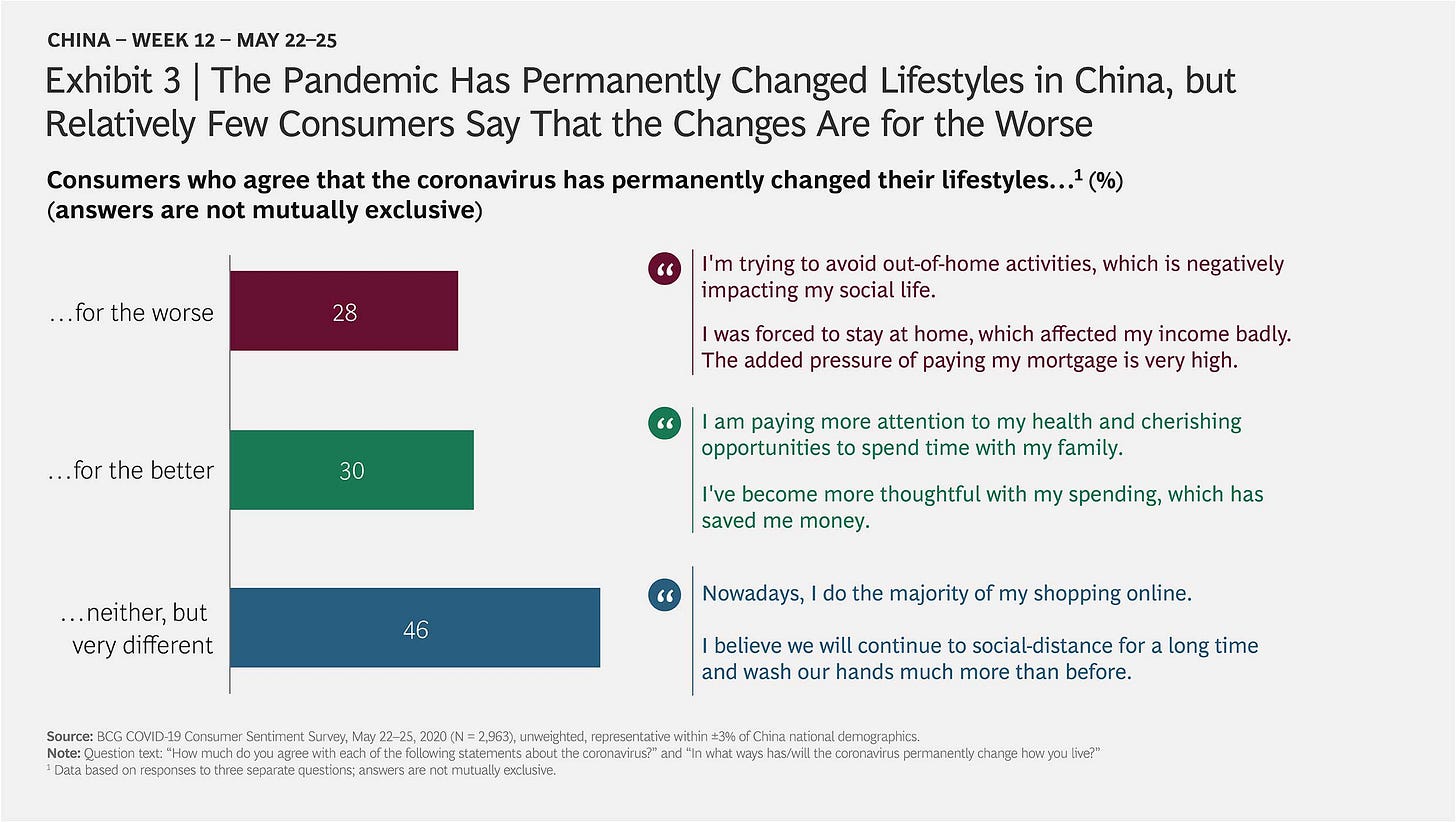Mango TV Taps Older Women for New Take on Idol Competitions
Plus: A livestreaming crackdown, creative foodscapes, and the return of our Report Corner.

In China’s booming reality show scene, the idol competition genre that aims to create new girl groups and boy bands is the most popular, with Tencent Video’s “Produce Camp 2020” (创造营 2020) and “Youth with You” (青春有你) among the top hits. Hunan TV’s online platform Mango TV is offering a new twist on the format, with its 30-and-over women’s version, “Sisters Who Make Waves” (乘风破浪的姐姐), which has quickly become the most talked-about show in China.
Instead of young unknowns, “Sisters” features celebrities between the ages of 30 and 52 who are already well established in their careers, most with more than a decade of experience in their fields and the strong and confident attitudes that come with that. Among the stars are former members of the K-pop group Miss A, Jia and Fei, actress Ning Jing, and Orfila (Wu Xin), a host of Hunan TV’s long-running variety show “Happy Camp” (快乐大本营). Actor Huang Xiaoming is another draw as the emcee.
Mango TV launched “Sisters” with little fanfare, but the first episode of the weekly series has already drawn more than 420 million views, and its popularity extends to YouTube, where it has been viewed more than 500,000 times. The company’s Shenzhen-listed shares also soared as a result of the success of “Sisters,” rising by nearly 9% on Friday, June 12, the day of its debut, and another 7% on Monday, June 15, bringing its market value up to RMB 107 billion (approximately $15 billion).
Reality shows have long been a strong suit for Hunan TV, and that has extended to its subsidiary Mango TV, which has a largely female audience. While many online programs still struggle to attract sponsors in the aftermath of the coronavirus, “Sisters” secured 13 brands, including C-beauty brand Thanmelin as the title sponsor, Vivo, Vipshop, and Oreo.
The oldest contestant on the show, Annie Shizuka Inou, is a spokesperson for Thanmelin, and its sponsorship is a good example of how brands can follow their celebrities onto television to enhance their marketing beyond the programming. On Weibo, Thanmelin also launched a campaign with giveaways for year-long premium subscriptions to Mango TV.
Other brands that are likely to see a boost from their ambassadors’ participation are sunscreen brand SuisMode, which is represented by actress Huang Shengyi, and Kuaishou, which works with actress Zhang Yuqi, and it’s expected that additional brands will flock to the show as the season progresses.
- by Ginger Ooi, CCI
We have seen a sharp increase in subscribers since the release of our Guide to Streaming Platforms in China. Welcome, new readers! We love hearing from you, so please reach out anytime via the button below.
Mentioned in today’s newsletter: Kuaishou, Lays, Mango TV, Oreo, Suismode, Superdry, Tencent Video, Thanmelin, Vivo, Vipshop, Wu Fang Zhai.
Authorities Plan Additional Regulation for China’s Booming E-commerce Livestreaming Sector

The China General Chamber of Commerce recently issued a notice on the development of national standards for online sales and e-commerce livestreaming, which are expected to be adopted in July.
Zhejiang provincial authorities are getting a head start on the process. This week, an industry forum was held in Hangzhou, home of Alibaba and a hub of e-commerce livestreaming activity, where the provincial Internet Business Association issued a draft for comment of service standards for e-commerce livestreaming for comment, marking the first time such rules have been developed in the country.
The Zhejiang rules envision extensive regulation of the industry, covering e-commerce live streaming platforms, merchants, livestream hosts, multi-channel networks, and all other business entities involved. Zhejiang also plans to finalize the standards in July.
Another crackdown on smaller, illegal livestreaming platforms is already underway. Led by the Cyberspace Administration of China, the six-month campaign targets pornography and other illegal content as well as counterfeit goods, and authorities have reported that 44 platforms have received sanctions ranging from fines to shutdowns.
While Chinese advertising laws apply to e-commerce livestreaming, the fleeting nature of broadcasts have allowed sellers to play fast and loose with the rules, such as those that prohibit the use of superlatives. As a result, it may be time for additional updates to the laws and regulations to specifically address livestreaming. In March, the State Administration for Market Regulation and 11 other departments highlighted the need to strengthen supervision of activity on online and livestreaming platforms.
Since late May, tax authorities have been scrutinizing big data to root out cases of “brushing,” the practice of using fake accounts to boost online sales and obtain better rankings on e-commerce platforms. An initial group of nearly 2,000 sellers in Beijing have received warnings and been ordered to pay taxes on their inflated sales figures.
Brand Film Pick: Traditional Brand Taps Into Trends for Annual Holiday Film
The packaged food brand Wu Fang Zhai is best known for its sticky rice dumplings wrapped in lotus leaves, a traditional snack most closely associated with the Chinese Dragon Boat Festival, which falls on June 25 this year. The 99-year-old brand has developed a strong reputation for its creative video content, even establishing its own studio to develop new projects.
Over the past several years, Wu Fang Zhai has released a major brand film to mark the Dragon Boat Festival. Last year’s retro/sci-fi “Guesthouse” (招待所) recalled the arthouse films of Wong Kar-Wai, while 2018’s “Grainmen” depicted a bizarre journey by grains of rice hoping to become part of a Wu Fang Zhai rice dumpling.
The brand’s 2020 film, “Friends Let’s Dip!” (朋友们蘸起来!), continues the entertaining tradition, with a riff on Hong Kong-style “nonsense” dialogue interspersed with shots of a surreal universe made of the ingredients used in Wu Fang Zhai’s new glutinous corn dumpling, recalling the “foodscapes” of British artist Carl Warner.
A senior couple riding a see-saw engage in a humorous back-and-forth, while an orb of corn represents the sun, hovering over a landscape of meat mountains and sweet potato hills as it faces the threat of a tomato asteroid. The wordplay includes references to current trends such as KOLs and livestreaming, and combines with unexpected scenery to promote Wu Fang Zhai’s latest product. It concludes by suggesting a new way of eating the dumplings with dipping sauces via a sculpture-like feeding machine, a comical innovation that gently pokes fun at the Gen Z and millennial desires to maintain ties to tradition while seeking out novel experiences.
The film’s release was timed to coincide with the brand’s participation in Alibaba’s June 10 “Juhuasuan Gathering Day” promotion. For that event, a gift box with trendy graphic elements was offered for sale on Wu Fang Zhai’s Tmall flagship store.
Report Corner

Boston Consulting Group’s latest consumer sentiment snapshot finds that many believe their lifestyles have been permanently changed by the coronavirus, but not necessarily for the worse.
A survey of 2,000 Chinese consumers by Morning Consult finds that staying at home is still the most popular leisure activity, and spending healthy foods and video streaming is rising while luxury items and clothing take a hit.
The average weekly time spent online was up by more than 10% in March 2020 compared with mid-2019, according to the latest overview from China Internet Watch.
International beauty brands draw nearly half of the beauty video views on Douyin, according to insights from the “Douyin Beauty Industry Report 2020” shared by WalktheChat.
News in English
China’s virtual idols are drawing attention from Western brands seeking to emulate the successful model of working with digital influencers. Vogue Business
A look at how luxury brands pay to play in Chinese fashion media, where the lines between editorial and advertising barely exist. WWD
Chinese cities are vying to draw livestreaming talent with housing subsidies and other incentives such as bonuses for livestreaming companies that go public. Caixin
One of Bilibili’s most popular creators, known as Necromancer Financial, has reportedly been poached by Bytedance’s Xigua Video with a contract worth RMB 100 million ($14 million), a sign of increasing competition for top content. PingWest
The move comes even as Bilibili, along with Kuaishou, are moving away from their original subculture focus to go mainstream. Sixth Tone
More than 13,000 film and TV companies have shut down so far this year, more than the total for 2019, with 26% of the closures occurring in May. Variety
The Spring 2020 edition of China’s largest trade expo is taking place online, but foreign buyers are not showing much interest. SCMP
The British streetwear brand Superdry appears to be preparing to exit the Chinese market after five years. Inside Retail Asia
Lays is collaborating with several old-school Chinese food brands on creative new chip flavors, including a White Rabbit candy version. The Beijinger
We’ve Got China Covered
China Film Insider: Tencent Aims to Become Biggest Shareholder of IQiyi
Jing Daily: Why Cross-Category Marketing Works in China
Jing Travel: Brand Impressions: Van Gogh Museum Partnership Signals China Push


